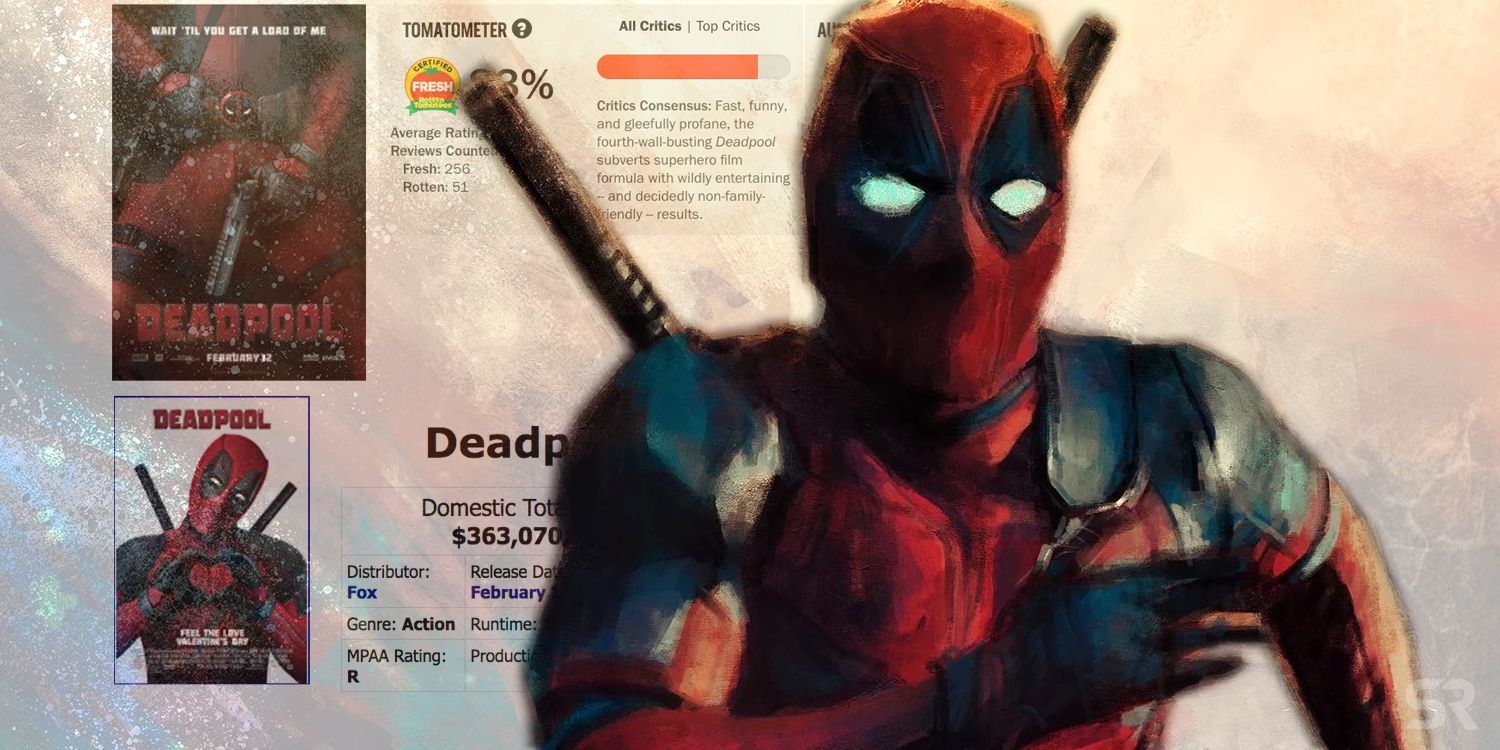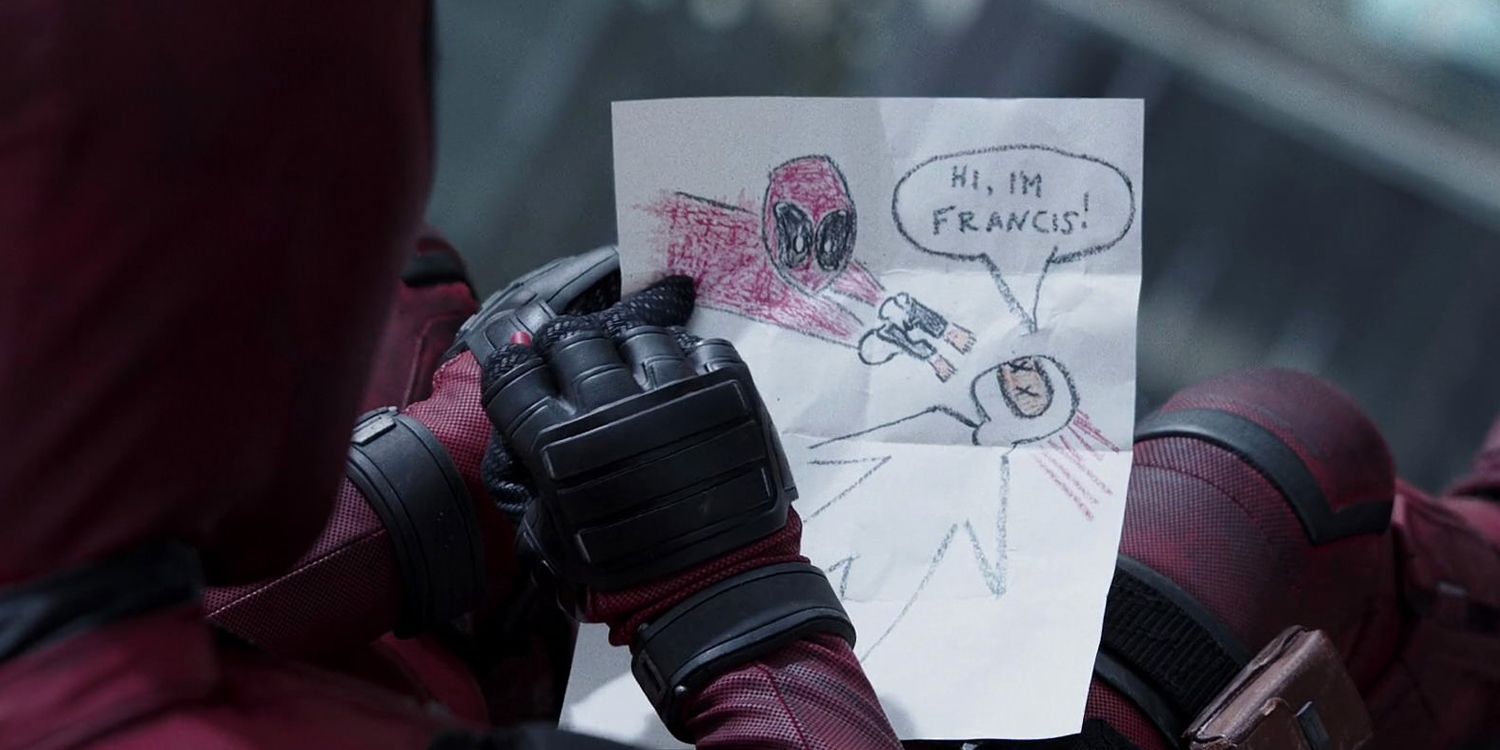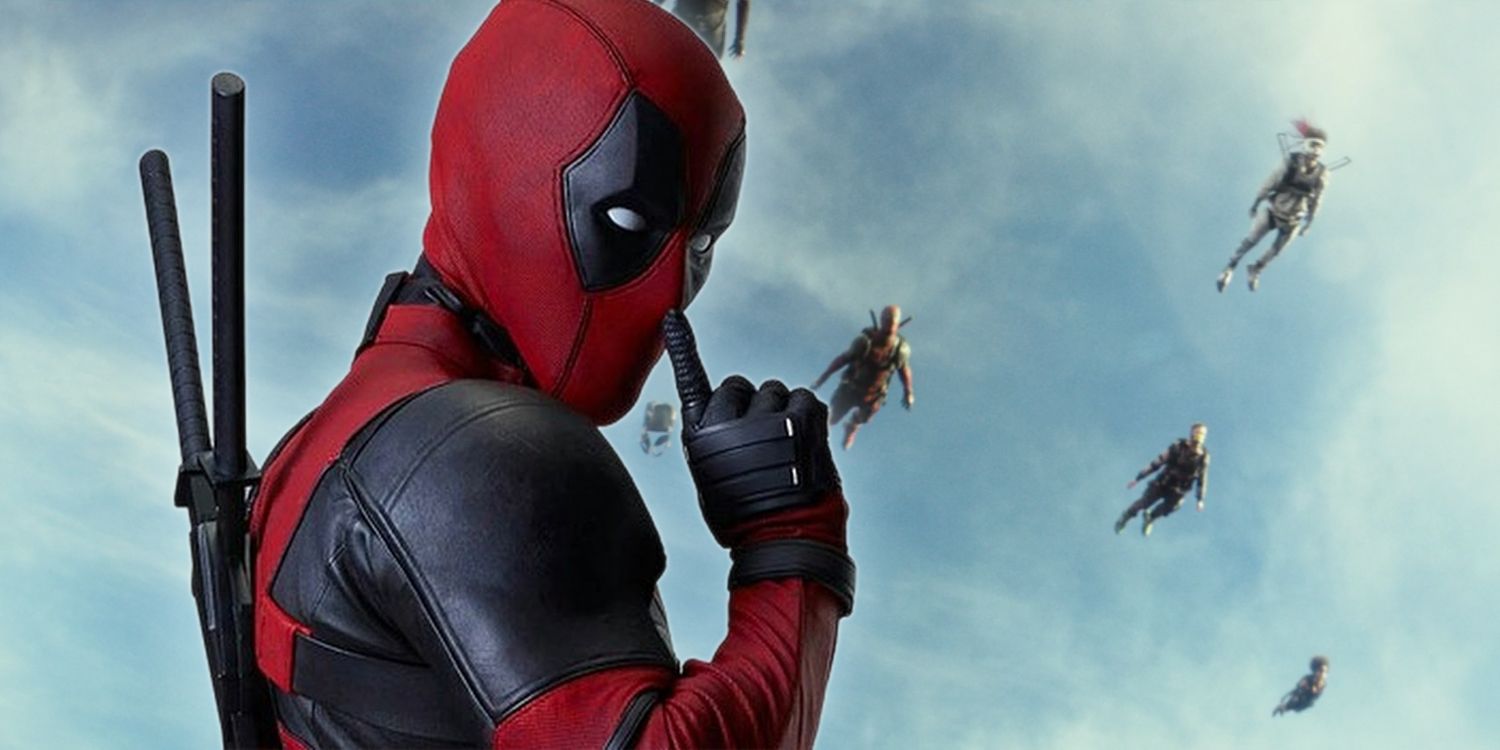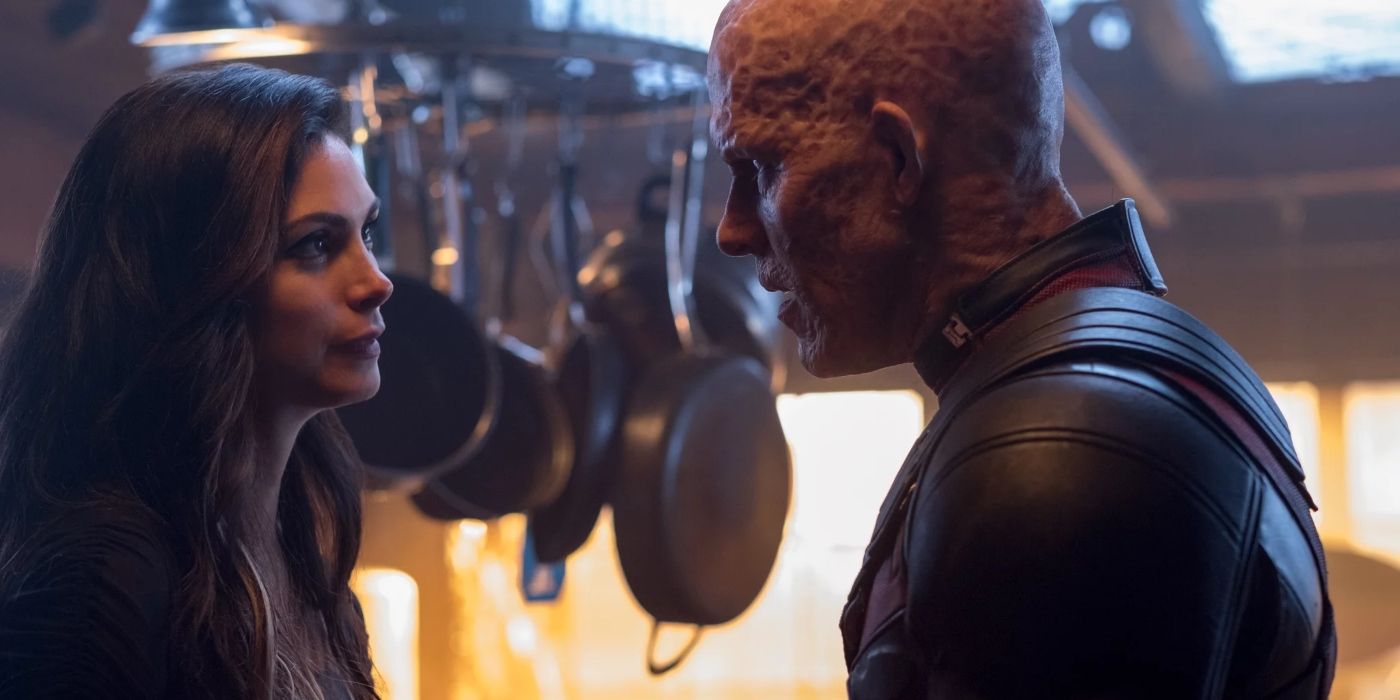Deadpool 2 is the rare blockbuster sequel that is actually better than the original, and it manages to top the first by addressing Deadpool's biggest problem.
By most metrics, Deadpool and Deadpool 2 are tightly locked movies. They have the exact same score with critics on Rotten Tomatoes (83%), while the sequel is just one point higher on Metacritic (66 to 65). At the box office, the story is very similar, with the sequel posting only slightly lower opening weekend numbers and expected to have fairly strong legs even going up against the likes of Solo: A Star Wars Story. As such, finding any real consensus on which film is more "successful" (however you define that) is tricky.
Related: Read Our Deadpool 2 Review
But drilling down into what both set out to do - and how they achieve that - there's one clear winner. What makes Deadpool 2 a more well-rounded film, at least from this subjective viewpoint, is how it handles a core facet of Deadpool's ideology that felt squandered by the first: subversion.
- This Page: Deadpool Was Irreverent, Not Subversive
- Page 2: Deadpool 2 Delivers On The Original's Promise
Where Deadpool 1 Let Itself Down
Deadpool existing was, at the time, something of a minor miracle. Ryan Reynolds had been trying to get the character his own solo movie for the better part of a decade, but the legacy of Origins: Wolverine and aversion to the concept kept things uncertain until test footage leaked, proving fan interest in the project. From this vantage point, a lewd, R-rated superhero pastiche was a big achievement that Deadpool delivered on. However, that's not to say it was necessarily enough.
The movie opens with a hilarious send-up of opening titles, the camera spinning through a time-stopped fight scene full of Easter eggs as mocking credits played out, and then proceeds to present a violent action scene of the sort that just hadn't been seen in the mainstream superhero genre before; as bloody as it was cartoonish. Then Deadpool shoves two swords into the final foe and addresses the audience saying "You're probably thinking, 'My boyfriend said this was a superhero movie but that guy in the red suit just turned that other guy into a fucking kebab'. Well, I may be super. But I'm no hero." The promise was of something far from your standard superhero movie, yet what follows is a pretty standard superhero movie; there's a power-turned-affliction, a damsel in distress (whatever Vanessa says otherwise), and only the R-rated trappings and carefully tuned fourth-wall breaks to distinguish it.
This wasn't necessarily bad, but it saw Deadpool struggle to find a cohesive identity. It was highly irreverent, sure, but only ever managed a pretense of true subversion; in this case, the difference between pointing something out and acting on it. Nowhere in its origin story narrative did Reynolds, Miller or writers Paul Wernick and Rhett Reese offer anything truly innovative, with its concluding note being one of acceptance of the abnormal, a message that has been the backbone of the genre since Superman: The Movie. The film remains hotly cited, but it's not really any more overtly self-aware than the likes of Guardians of the Galaxy, which likewise spear tropes in a more metatextual way.
Related: Deadpool 2's Director Change: What's True & What's Just Rumor
This doesn't hurt Deadpool as an action-comedy or superhero origin film, but its satire is broad - something that no doubt actually helped its success yet means it lacks a long-term impact. Enter the sequel...
Page 2 of 2: Deadpool 2 Delivers On The Original's Promise
Deadpool 2 Brings The Subversion...
Deadpool 2 could be described, in many ways, more of the same. Wade Wilson smashes the fourth wall as he tells a story lightly twisting familiar genre tropes (even those the writers weren't aware of), but what distinguishes it is a considerably greater sense of purpose. The sequel is so much of what many people expected from the first, but that it failed to deliver on.
On a granular level, the specific jokes are stronger - Wolverine is speared more violently than X-24's tree impalement, the Marvel jokes aim deeper than acknowledging Thanos, and the DCEU's recent downturn is brutally addressed - and its riffing on the framework of a superhero movie are actually novel; the X-Men cameo is self-justifying, Brad Pitt pays off a painfully specific Interview With A Vampire reference, Matt Damon Dickie Greenleafs his way in, and Frozen gets one of its deepest critical analyses.
The key here is that at no point in development does Deadpool 2 feel like it was held back by uncertainty or wariness on the part of the studio or filmmakers. After the first movie proved the brand, Deadpool can do anything (except, it seems, have Hugh Jackman cameo), and so everything is stepped up to a level where the irreverence is so utterly dominating the movie becomes semi-subversive by its near-blatant ignorance. To end with a full admittance that the X-Men timeline can never make sense and wholeheartedly embracing that is on a whole other level to allowing Colossus a bit-part.
Related: Deadpool 2 Breaks X-Men Continuity - And Then Fixes All The Timeline Problems
...Yet Wade Wilson Can Still Be Emotional
But there's something more targeted too. Deadpool was the origin story, but Deadpool 2 isn't just the standard sequel; it doesn't hone in on "Part 2s" - the "no Deadpool 3" joke from the trailers is absent - nor time travel, but rather the idea of the team-up movie. The film directly tackles aspects of Deadpool's source - Rob Liefeld's problem with drawing feet and fetishizing of fanny packs - and the notion of an uber-badass X-Force by bringing out some lesser, on-paper-cool heroes before offing them in the most humiliating fashion imaginable. Again, this isn't too far from the genre as standard - the nearest reference point for the X-Force massacre is Iron Man 3's Mandarin twist - but altogether we have a movie far more interested in pushing the limits.
That all of this is achieved with the film still able to deliver a story of genuine emotion, with Wade forced to face loss as an immortal being in stark terms, is particularly impressive. It did require the writers "fridging" Vanessa, putting her through a similar cliched love interest plot as before, but method-be-damned, the cathartic payoff as Deadpool accepts his heart being in the right place is certainly striking. In fact, for all the creative tightrope walking of making a jokey movie serious, the film could have almost used more of this mortality play to better power Wade's morality exploration; the restraint for most of the movie is paradoxically one of the weakest areas of confusion.
-
It's easy to see why both Deadpools have gained round-about similar attention. For all the upscaling, they are operating in a similar ballpark. However, under Tim Miller and a $60 million budget, the concept had a ceiling. David Leitch's effort is a more strongly directed film, for the most part confident enough in its pure offerings there's no need for a disjointed timeline or promises of being different. It just was. Deadpool 2 is a "bigger and better" sequel that by actually filling a key gap is bigger and better.




